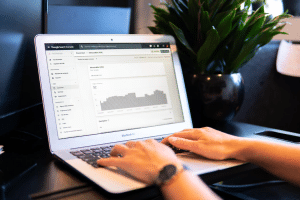What is Cost Per Page Like?
This is a metric to see your ROI (or return of investment) on your page likes that could be attributed to your ad post. This metric is calculated by taking the total amount that you have spent on your ad campaign and dividing it by the number of page likes this specific ad set got you.
You could be using it because boosting your page likes was one of your ad campaign objectives. More page likes could lead to more page engagement, interaction, and eventual conversions. Not to mention, it generates more leads for your future ad campaigns.
You want to be minimizing your cost while maximizing your page likes. If you notice that you are consistently spending your maximum bid and still not getting the results that you were hoping for, consider restrategizing your ad campaign. This could be a sign that you are targeting the wrong audience or that your content is not as high quality as it possibly could be.

Myriam Jessier / Unsplash
How Do I Distinguish Between Organic Likes and Paid Likes?
It is entirely possible for someone to come across your page and like it while you are also running multiple ad campaigns. After all, the amount of work that you are putting into your branding and content should lead to organic interest from your target audience. But the last thing you want when calculating and analyzing your metrics, as well as budgeting, is to include likes that are not actually a result from your ad post.
No worries though, Facebook post-distribution has a method for taking care of this. If a user liked your page within a day of seeing your ad, it is considered a paid like. A user clicking on your ad works similarly. If they click on your ad, then there is a 28-day window afterward in which if they like your page it will be considered a paid like.
Why are Page Likes Important?
If we’re putting this much effort into producing more page likes and analyzing them in relation to other important metrics, they must be meaningful for our company and marketing team. But why?
First of all, the makeup of people who are liking your page provides valuable data. From giving you their information, interests, and tendencies from the Facebook pixel, it can also give you valuable data for constructing lookalike audiences. Therefore, having an accurate assessment of your page likes will allow for you to create content for your users to keep them engaged, and have the necessary insights to create compelling ad campaigns for the users that you don’t have yet, but that you want.
